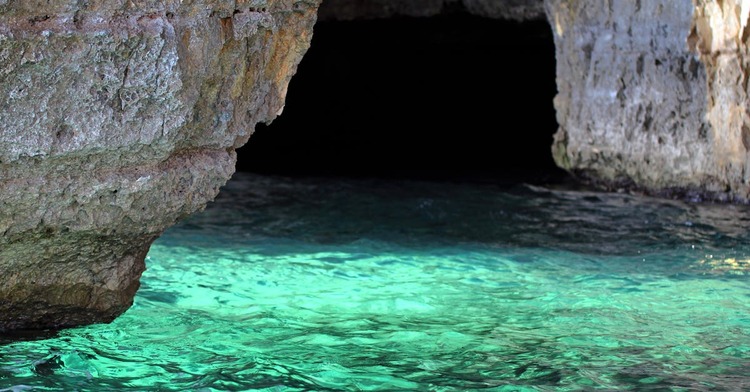
Underwater cave exploration is one of the most thrilling and challenging pursuits in the world of diving. These submerged labyrinths offer a glimpse into a hidden world, filled with stunning rock formations, crystal-clear waters, and ancient secrets. From the cenotes of Mexico to the Blue Holes of the Bahamas, underwater caves present opportunities for both discovery and adventure. However, cave diving requires specialized training, advanced equipment, and a healthy respect for the risks involved.
In this article, we’ll dive into the allure of underwater caves, discuss the skills and preparation needed, and highlight some of the world’s most iconic underwater cave systems.
Why Explore Underwater Caves?
The appeal of underwater caves lies in their beauty, mystery, and scientific value. These environments are some of the least explored places on Earth, with their isolated conditions preserving geological formations and ecosystems that are millions of years old. Here’s why so many divers are drawn to these hidden worlds:
1. Unique Geological Features
Underwater caves often feature dramatic rock formations like stalactites, stalagmites, and flowstone. Some caves are decorated with fossils or contain rare minerals, offering a glimpse into Earth’s geological history.
2. Biodiversity
Many underwater caves host unique ecosystems. Blind fish, shrimp, and other cave-dwelling organisms have adapted to these lightless environments in fascinating ways. In some cases, cave systems are home to species found nowhere else on Earth.
3. Scientific Discovery
Cave diving contributes to research in fields like geology, biology, and archaeology. Many caves contain ancient remains, including human artifacts, fossils, and evidence of early civilizations.
4. The Thrill of Exploration
For many divers, the sheer adventure of entering uncharted spaces beneath the surface is the ultimate draw. The quiet, otherworldly atmosphere of underwater caves creates an experience that few other environments can replicate.
Skills and Preparation for Cave Diving
Cave diving is an inherently risky activity, even for experienced divers. It requires specialized skills, training, and equipment to navigate safely through narrow passages, avoid disorientation, and handle emergencies.
1. Get Certified
Cave diving is not for beginners. Divers must first master open water and advanced diving techniques before pursuing a cave diving certification. Training programs from organizations like the National Association for Cave Diving (NACD) or the Professional Association of Diving Instructors (PADI) offer courses that cover:
- Proper use of cave diving equipment
- Navigation techniques using guide lines
- Emergency procedures, including managing low visibility or equipment failure
- Air consumption management
2. Use Specialized Gear
Cave diving requires more equipment than standard recreational diving. Essential gear includes:
- Double Tanks: Provide extra air supply for long dives.
- Primary and Backup Lights: Ensures visibility in pitch-black conditions.
- Guide Line and Reel: Helps maintain orientation and ensures you can find your way back to the exit.
- Redundant Equipment: Backup regulators, masks, and other gear are essential in case of failure.
3. Practice Buoyancy and Navigation
Maintaining perfect buoyancy is critical in underwater caves to avoid kicking up sediment, which can create "silt outs" that reduce visibility to zero. Navigation is equally important, as the complex layout of caves can quickly disorient even experienced divers.
4. Plan Your Dive Thoroughly
The “Rule of Thirds” is a critical planning principle in cave diving: one-third of your air supply is used to enter the cave, one-third to exit, and the final third is reserved for emergencies. Always dive with a buddy and establish clear communication signals before entering the cave.
Top Underwater Cave Systems Around the World
For divers ready to take on the challenge, the following underwater caves are considered some of the best in the world.
1. Cenotes (Mexico)
The Yucatan Peninsula is famous for its cenotes—natural sinkholes that provide access to sprawling underwater cave systems. Cenote Dos Ojos and Cenote El Pit are popular spots, offering clear water, stunning rock formations, and archaeological finds like ancient Mayan artifacts.
2. Great Blue Hole (Belize)
A UNESCO World Heritage Site, the Great Blue Hole is a massive underwater sinkhole that descends 400 feet into the Earth. Divers can explore limestone stalactites and sheer walls, though this site is best suited for advanced divers due to its depth and potential for nitrogen narcosis.
3. Devil’s Cave System (Florida, USA)
Located in Ginnie Springs, Florida, Devil’s Cave System offers one of the most accessible cave diving experiences in the U.S. Its clear, spring-fed waters make it ideal for both training and experienced cave divers.
4. Orda Cave (Russia)
The Orda Cave in the Ural Mountains is one of the longest underwater gypsum caves in the world. Its translucent waters and glittering white walls create an ethereal diving experience.
5. Bahamas Blue Holes
The Bahamas are home to hundreds of Blue Holes—vertical underwater caves that drop into the ocean floor. Dean’s Blue Hole, the world’s second-deepest sinkhole, is a must-visit for advanced divers.
6. Wakulla Springs (Florida, USA)
Wakulla Springs is part of one of the longest and deepest underwater cave systems in the world. This site has been a key area for scientific research and exploration, with cave divers mapping over 30 miles of its passages.
Risks and Safety Considerations
Underwater caves are beautiful but unforgiving environments. Divers must understand the risks and take steps to mitigate them:
- Disorientation: Narrow passages and poor visibility can cause divers to lose their sense of direction. Always use a guide line and carry backup lights.
- Silt Outs: Kicking up sediment can lead to zero visibility. Proper fin techniques and buoyancy control are critical.
- Equipment Failure: Redundant gear is essential to manage malfunctions.
- Psychological Stress: Cave diving can be mentally challenging due to confined spaces and the potential for emergencies. Mental preparedness and experience are vital.
Leave No Trace Underwater
Like any other outdoor activity, cave diving requires respect for the environment. Follow these guidelines to minimize your impact:
- Avoid touching rock formations or disturbing sediment.
- Never remove artifacts or disturb wildlife.
- Follow local regulations and respect protected areas.
- Dispose of waste properly and avoid polluting water systems.
Conclusion
Exploring underwater caves is an awe-inspiring way to connect with the natural world. These submerged environments offer unparalleled beauty, scientific discovery, and a sense of adventure. However, cave diving requires rigorous training, careful planning, and an understanding of the risks involved.
For those willing to put in the effort, diving into hidden underwater worlds is an unforgettable experience. Whether you’re exploring the cenotes of Mexico, the Blue Holes of the Bahamas, or Florida’s sprawling cave systems, underwater caves represent some of the most remarkable frontiers on Earth.
To learn more about diving destinations, safety tips, and gear recommendations, visit the Outdoor Adventures Connection website at www.outdooradventures.pro.

.png)

-(2).png)


.png)


.png)





-(1140-×-106-px).png)
.jpg)
Leave Comment Below